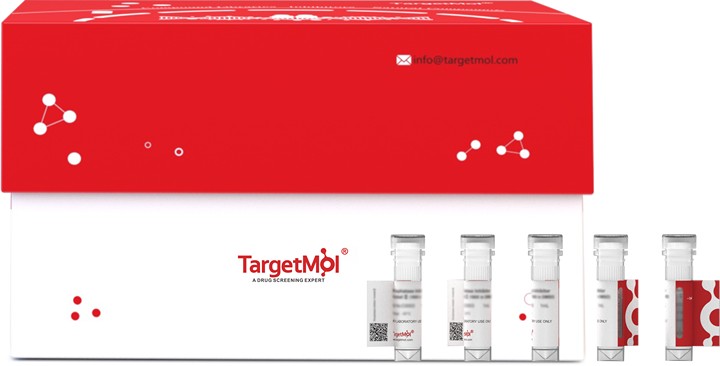Shopping Cart
- Remove All
 Your shopping cart is currently empty
Your shopping cart is currently empty

KRAS Protein, Human, Recombinant (G12S, GST) is expressed in E. coli expression system with GST tag. The accession number is P01116.

| Pack Size | Price | Availability | Quantity |
|---|
| Biological Activity | A Homogeneous Time-Resolved Fluorescence (HTRF) based system was established for the protein-protein interaction between KRAS-G12S and its interacting protein SOS1. The positive compound, SOS1 inhibitor BI3406, exhibited an inhibitory activity (IC50) of approximately 18 nM, consistent with reported activities in the literature. |
| Description | KRAS Protein, Human, Recombinant (G12S, GST) is expressed in E. coli expression system with GST tag. The accession number is P01116. |
| Species | Human |
| Expression System | E. coli |
| Tag | N-GST |
| Accession Number | P01116 |
| Synonyms | RASK2,RALD,NS3,NS,K-RAS4B,K-RAS4A,K-RAS2B,K-RAS2A,KRAS2,KRAS1,K-RAS,Kirsten rat sarcoma viral oncogene homolog,KI-RAS,C-K-RAS,CFC2 |
| Amino Acid | MTEYKLVVVGASGVGKSALTIQLIQNHFVDEYDPTIEDSYRKQVVIDGETCLLDILDTAGQEEYSAMRDQYMRTGEGFLCVFAINNTKSFEDIHHYREQIKRVKDSEDVPMVLVGNKCDLPSRTVDTKQAQDLARSYGIPFIETSAKTRQGVDDAFYTLVREIRKHKEK |
| Construction | A DNA sequence encoding the Human KRAS-G12S (uniprot# P01116) (Met1-Lys169) was expressed with a GST tag at the N-terminus |
| Protein Purity | >90% as determined by SDS-PAGE. |
| Formulation | Supplied as a 0.2 μm filtered solution of 20 mM Hepes (PH=8.0), 150 mM NaCl, 1 mM DTT |
| Stability & Storage | It is recommended to store the product under sterile conditions at -20°C to -80°C. Samples are stable for up to 12 months. Please avoid multiple freeze-thaw cycles and store products in aliquots. |
| Shipping | Shipping with blue ice. |
| Research Background | K-Ras belongs to the small GTPase superfamily, Ras family. As other members of the Ras family, K-Ras is a GTPase and is an early player in many signal transduction pathways. It is usually tethered to cell membranes because of the presence of an isoprenyl group on its C-terminus. K-Ras functions as a molecular on/off switch. Ras proteins bind GDP/GTP and possess intrinsic GTPase activity. Plays an important role in the regulation of cell proliferation. Plays a role in promoting oncogenic events by inducing transcriptional silencing of tumor suppressor genes (TSGs) in colorectal cancer (CRC) cells in a ZNF304-dependent manner. Besides essential function in normal tissue signaling, the mutation of a K-Ras gene is an essential step in the development of many cancers. Several germline K-Ras mutations have been found to be associated with Noonan syndrome[4] and cardio-facio-cutaneous syndrome. Somatic K-Ras mutations are found at high rates in Leukemias, colon cancer, pancreatic cancer and lung cancer. |

Copyright © 2015-2025 TargetMol Chemicals Inc. All Rights Reserved.